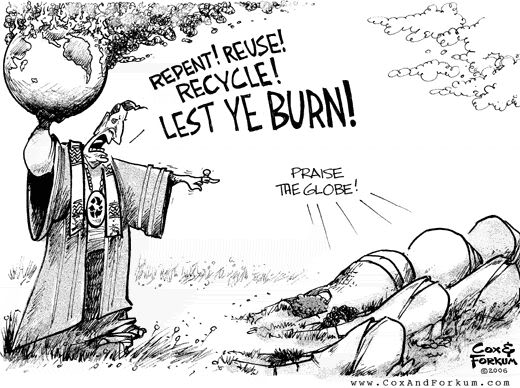In the dark world of the climate catastrophists, fossil fuel companies are the villains. Having been persuaded by the hugely inaccurate (to the point of being irrelevant) climate change models and operating from an anti-human stance, climate catastrophists are continually attacking oil, natural gas, and coal producers and advocating for renewable energy sources—primarily wind and solar—which they claim to be “clean.” Using tactics such as acknowledging only potential negative side effects of fossil fuel production and consumption, catastrophe scenarios based on grossly inaccurate climate models, and made-up statistics, the catastrophists are trying to influence the media, the public opinion, and governments to share their anti-fossil fuels view. Unfortunately, they are succeeding.
(For an excellent analysis of the accuracy of climate models, listen to Alex Epstein’s podcast interview of Dr. Patrick Frank, member of the scientific staff at Stanford Synchrotron Radiation Lightsource/SLAC at Stanford University).
‘Catastrophic, man-made’ climate change is taken as a not-to-be-questioned fact by most of the media and the general public. In their eagerness to secure re-election, governments are responding by trying to gradually suffocate fossil fuel companies through climate action plans, carbon taxes and emission caps, and stalling or banning new pipelines (in the case of oil and natural gas). And the born-again converts to climate alarmism are embracing the government measures and working diligently to reduce their ‘carbon footprint’, stopping short of ceasing to breathe.
While the climate catastrophists are cheering at their success, anyone who cares about human flourishing, should pause and do the following:
Ask whether climate catastrophism is justified by facts. According to Dr. Frank’s analysis, there is no scientific evidence to support climate catastrophism; it is solely based on grossly inaccurate climate models. None of the anti-carbon measures imposed by governments on the fossil fuel companies and individual citizens make any significant difference on the CO2 levels in the atmosphere or on the temperatures around the globe. The carbon levels have been historically much higher than they are now, to no ill effect.
Identify and question the standard of value of climate catastrophists. The catastrophists are not operating by the standard of human well-being and prosperity. Their standard is a pristine planet, untouched by humans—ideally, we should not take any resources from nature or emit anything (CO2 and other greenhouse gases, industrial by-products, etc.). In that view, we should retreat to the pre-industrial lifestyle, to live “in harmony” with nature. But what would that do to human flourishing? What would be the consequences of giving up the affordable, abundant and reliable energy from the fossil fuels? How would our lives be affected by the lack of all the modern technology, from life-saving medical devices, industrial equipment, heating and cooling, and communications devices, powered by such energy?
Recognize both risks and benefits of fossil fuels and their alternatives by the standard of human flourishing. A favorite tactic of climate alarmists is to demonize fossil fuel companies as “destroying the planet,” often using made-up-statistics as their tool, to the point of claiming that fossil fuels cause X number of deaths. No energy source is risk-free, but
to claim that fossil fuels have only risks and no benefits, while their alternatives have only benefits and no risks, is a fantastic distortion of the facts.
By the standard of human flourishing, fossil fuels offer much more benefits than they have risks. While there have been some negative effects, such as oil spills and pollution (now effectively reduced by modern technology), the benefits of fossil fuels, such as more food production, more clean water, and fewer climate-related deaths. For a well-researched analysis, read Alex Epstein’s The Moral Case for Fossil Fuels.
At present, over 80% of global energy comes from fossil fuels, and only about 2% from the unreliable wind and solar. Through human ingenuity, it is possible to develop affordable, plentiful, and reliable alternatives to fossil fuels, but over 80% cannot be replaced by 2% overnight without compromising human well-being. There also must be an incentive based on the standard of human flourishing to develop alternative energy sources. Currently, besides being unreliable, wind and solar have their own downsides, such as being much more resource-intensive (steel and iron) to produce and store than fossil fuels and toxic materials used in solar panels (being hazardous to those who mine them).
Recognizing facts and assessing them by the standard of human flourishing inevitably leads to the conclusion that fossil fuel companies are not villains but producers of essential human value and deserve to be not attacked, but thanked.
Cartoon by Cox and Forkum



